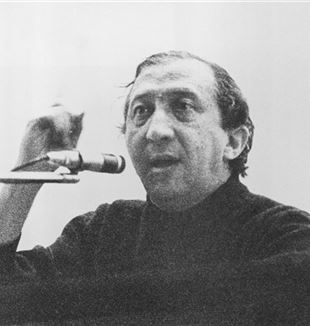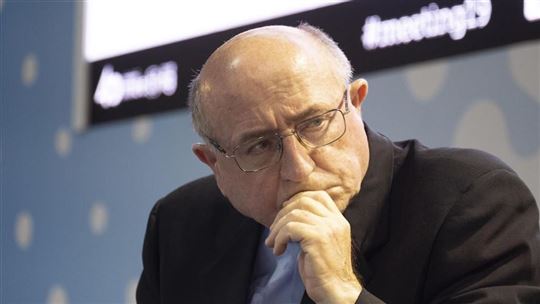
Fr. Giussani: Here is how the cause for beatification will proceed
Monsignor Ennio Apeciti, Head of the Diocesan Office for the Causes of Saints, explains the path of the process toward the founder of CL’s beatification.The testimonial phase of the Cause for the Beatification of the Servant of God, Monsignor Luigi Giussani, will begin next May 9. This announcement was communicated by the Archdiocese and, a few minutes later, by the Communion and Liberation Press Office.
We asked Monsignor Ennio Apeciti, Head of the Diocesan Office for the Causes of Saints and archiepiscopal delegate for the Cause of Beatification of the founder of the movement and of the Fraternity of CL, what it is all about and how this important, second moment in the process toward Fr. Gius’ beatification has been reached.
"After having, for 12 years now, worked to collect the immense amount of documentation related to Giussani, it is now a matter of completing the matter through discussion, as the norms require, with the people of God. This involves gathering the testimonies of a group of people who can confirm or add to what the documentation has already offered us," Apeciti explains.
Did the first announcement come from the Diocese of Milan because this new step takes place in the context of the diocesan phase of the process?
That is right, because the process began in Milan when, 12 years ago, the invitation was accepted by the then archbishop, Cardinal Angelo Scola, who made the public announcement in the Duomo on February 22, 2012, the seventh anniversary of the death of the Servant of God and the 30th anniversary of the recognition of the Fraternity of Communion and Liberation. The process then continued under the episcopate of Monsignor Delpini, arriving to where we are now.
The archbishop will begin the testimonial phase in the Basilica of Sant’Ambrogio on May 9. Is there a specific reason for this choice of date and place?
Yes. We decided that the celebration would take place on the feast of the Ascension because, reading the writings of the Servant of God, we found several references to this solemnity that excited him. The Basilica of Sant’Ambrogio was then chosen because every Ambrosian priest refers back to the exemplarity of the greatest patron saint of our Church, and because the church is contiguous to the Catholic University of Milan where Giussani taught. And because both Giussani and the movement are very deeply attached to the university.
How will the May 9 celebration be organized?
It will be a time of prayer because it is, in any case, an ecclesiastical gesture. We will celebrate Vespers and, before the Magnificat, the Archbishop will take the floor and the legal part will begin with the oath, the mandate to the members of the tribunal, and the reading of the minutes. With the new phase of the Cause established and canonically initiated, it will be nice to sing the Magnificat all together as a hymn of praise and thanksgiving.
It is already possible to predict how long the testimonial phase might last?
After the documentary phase which, necessarily, was very prolonged, having had to examine tens of thousands of pages of writings, we would like to limit the duration of this further investigation of confirmation of what has already come to light. We will, therefore, reduce the hearings to the number that the Congregation for the Causes of Saints recommends and which is normally done by hearing 50-60 witnesses. We anticipate, therefore, a time frame of about a year and a half but, obviously, everything will depend on the richness of the testimonies.
How will the Cause then proceed?
Once the documentary material and testimonies have been gathered, we can move on to the third phase, the so-called miracle phase. This involves the study and investigation of whether, among the many graces Giussani has already granted to those who pray to him, there is a particular grace that can be defined and identified as a miracle.
Read also - The testimonial phase of Fr. Giussani's cause for beatification opens
How will the witness hearings take place? Will they be private and before a committee?
They are confidential, no one can be admitted except me as the archiepiscopal delegate and the notary who makes sure the procedure is correct and validated. We can, eventually, inform the postulator.
What is the profile of the witnesses, and have you already chosen them?
According to the Holy See's indications, they must represent the various faces of the Church. We will, therefore, have priests, some bishops, consecrated men and women, and laypeople.
Not only adults, considering that Giussani died in 2005, but also young people who can say how Monsignor Giussani showed them an exemplary way of testimony.
Will the testimonial phase be made public?
The documentation collected will be handed over to the Holy See who will decide. The Holy Father is the only judge who, ultimately, even after consulting with others, will verify whether there are the elements – through those we have collected – for which the Cause can proceed.
from www.chiesadimilano.it#TestimonialPhase